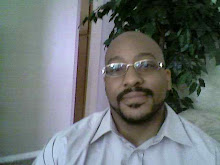While most Americans are using the internet and other technology to enjoy various forms of entertainment, other countries are using technology as a tool to bring about change. Civilians of oppressed countries are now rapidly becoming field reporters, covert camera crews, and practitioners of espionage, all in an effort to realize their individual freedom. Without the technology that is available today, citizens might not be able to make the strides toward their freedom that they have made thus far.
A prime example of the impending technological revolution is the censorship issue between Google and China. As shown in the photo above, the image results for Tiananmen on the U.S. Google site and the Chinese Google site are drastically different. This difference was due to Google's agreement to censor China's web content for the Chinese government; however, Google has now decided to withdraw from that agreement. The internet censorship has lead to a great deal of outrage amongst Chinese citizens, and many tech-savy individuals have already begun finding ways to get around governmental internet controls. Chinese "netizens" are actively displaying how technology has the capability to break down barriers. The Chinese government will not be able to successfully censor web content for a long period of time, because as technology advances, more ways become available to "beat the system."
Happenings in places such as Iran and Burma have an even more Revolutionary tone. In areas such as these, citizens are using technology to document protests, political unrest, and even instances of brutality. In a blog entitled
Anonymous Iran, unamed individuals are currently discussing ways to send video and photo images to remote locations where they can be safely uploaded to the internet -- a defense mechanism in case their recording device is ever taken away by the authorities. In Burma, individuals are using the web to raise awareness about their situation to people abroad. Many celebrities have gotten on board and are now human rights advocates/activists for the people of Burma (there is no doubt that many of these celebrities would not even be aware of the situation in Burma if it was not for technology keeping them abreast on international issues). We are now just as capable of finding out what is going on across the globe, as we are across the street.
Finally, the last article I read was about the new YouTube direct, which was hilarious in my opinion. I found this article funny, because YouTube Direct is a tool that major news organizations can use to basically fish for "instant stories" put together by novice reporters and camera operators. Although the reporters have gone to school, earned the degrees, and are making the big bucks, they are now able to benefit from the hard work of the average joe with a camera phone and dreams of being in the media biz. This directly speaks to the point I made in my first blog post, when I stated that it is going to be hard for "freelance artists" to get paid for their work. As the article stated, if the freelancers are not going to be rewarded for their work (monetarily or with production/writing/photo credit), then they are better off setting up their own site and producing their work independently. There is no need for the head of the tail to get involved and hog all the glory.
I believe that technology will have a tremendous effect on democracy, because technology allows for freedom of expression, even in places where it is not supposed to be allowed. The government may currently be able to dictate what a citizen says or does in person when they are being physically watched; however, the government cannot always effectively monitor the "cyber citizen." These internet activists will be the catalysts for a technological revolution in the very near future.
http://www.youtube.com/direct
http://www.youtube.com/watch?v=z2EEJkyntV4
http://news.bbc.co.uk/media/avdb/news/world/video/122000/nb/122284_16x9_nb.asx?ad=1&ct=50
http://www.witness.org/
Google China side-by-side photo posted by Danny Sullivan on January 30, 2006.










